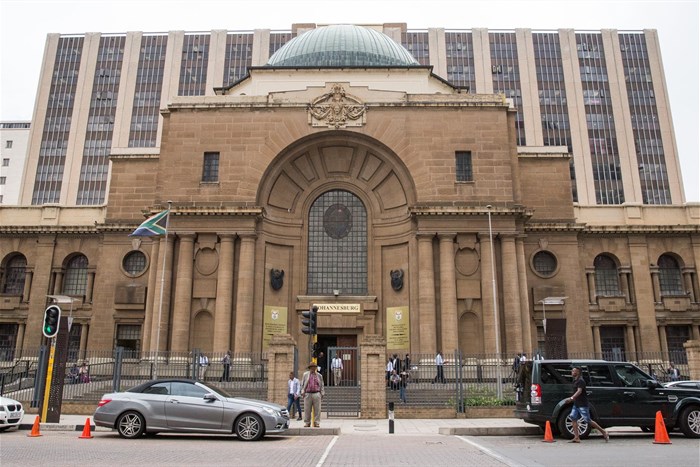
Top stories






More news














Lawyers have been chastised by the Johannesburg Labour Court for bringing “absolutely hopeless cases” before it, and in two cases prohibited the attorneys and advocates from charging their clients any fees.
Acting Judge Smanga Sethene directed that if fees had already been paid, the lawyers had to pay back the money.
Judge Sethene began in his judgment with a quote from the Victoria University of Wellington Law Review: “Where a hopeless case is brought with the assistance of the advocate, the advocate must either be bringing it in the knowledge that it is hopeless (and therefore assisting in an abuse), or believing that it is not hopeless (therefore incompetent), or not caring whether it is hopeless (and therefore guilty of recklessness or gross negligence). In any of these cases, the conduct of an advocate warrants action being taken by the court.”
He said he had written a consolidated judgment on two urgent applications “for the simple reason that both were hopeless in law and facts”.
One involved Unisa, which had employed Dr Marcia Socikwa as one of its vice-principals for a five-year fixed term contract. Her contract was not renewed, and she felt this was unfair.
Socikwa approached the CCMA and an award of six months’ salary, amounting to about R1.2m, was made in her favour.
Unisa filed a review application with the labour court in October 2022 challenging the CCMA’s ruling but did so out of time and no further action was taken. The application was then “deemed archived”.
Acting Judge Sethene said Unisa did not make an application to resuscitate the application.
When Socikwa went with the Sheriff in May this year to attach assets from Unisa, the institution sprang into action, approaching the court and claiming there was a review application pending and that Socikwa was acting unlawfully.
The basis for this was an affidavit by Professor Vuyo Ntsangane Peach, the head of legal services, who said the review application had been launched on 5 May 2023.
Sethene said when he challenged Unisa’s lawyers about whether there was a pending review, counsel took instruction and then asked for an order striking its own application from the roll with costs.
“In clear terms, Prof Peach in Unisa’s founding affidavit elected to be a stranger to the truth or perhaps he deliberately meandered into amnesia as a tactic to deceive the court,” he said.
Sethene said the case number of the review application provided by Peach, which he claimed was launched in May this year, had the same case number as the “archived case” in which he had also deposed to an affidavit.
The second matter which attracted Judge Sethene’s ire involved the Limpopo Department of Justice and Constitutional Development’s dismissal of a clerk who later obtained an order of reinstatement from the General Public Service Sectoral Bargaining Council.
The department filed a review application with the labour court 37 weeks later, which then lapsed.
Like Unisa, the department went to court urgently, when the clerk, through the Sheriff, sought to attach its assets.
“For both applicants, Unisa and the department, urgency was self-created for reasons that are inexplicable, devoid of rationality and candour,” Judge Sethene said, noting that both had ignored stipulated timeframes for lodging review applications.
“However, both applicants, powered by the prevalence of ineptitude... believed there was hope in their hopeless urgent applications.
“They ought to have known there were no pending review applications before this court due to their inexplicable sloppiness in prosecuting their applications.”
Judge Sethene said he blamed their legal representatives who, once briefed, had a duty to protect the court from the burden of “entertaining and adjudicating absolutely hopeless cases” at the expense of more worthy cases.
“Understand, it must be deprecated by those who attach premium and prestige to their trade as legal practitioners to align themselves with cases that are absolutely hopeless for pecuniary reasons.”
He struck both matters off the roll and ordered that attorney and advocate acting for Unisa cannot charge any fee. If they already had, to reimburse Unisa within 60 days.
He also ordered the Legal Practice Council to investigate the conduct of Prof Peach.
In the justice department application, he made a similar order regarding fees against the advocate and directed the state attorney’s office (which briefed the advocate) to investigate the conduct of its own attorney.
He awarded costs against both Unisa and the department on a punitive scale.
According to the judgment, the lawyers for Unisa were Advocate Sello Raselalome instructed by Poswa Inc; and for the department Advocate N.R Choeu, instructed by the State Attorney, Polokwane.
This article was originally published on GroundUp.

GroundUp is a community news organisation that focuses on social justice stories in vulnerable communities. We want our stories to make a difference.
Go to: http://www.groundup.org.za/